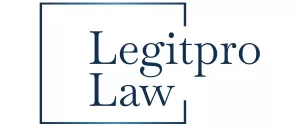- with Finance and Tax Executives
- in European Union
- in European Union
- in European Union
- in European Union
- with readers working within the Retail & Leisure and Law Firm industries
On 4 November 2025, the Ministry of Commerce and Industry notified the final version of the Copyright (Amendment) Rules, 2025. Although the modifications are few in number, their implications are profound. The most significant addition is the introduction of Rule 83A, which stipulates that all licence fees required for the public communication of literary works, musical compositions, and sound recordings must be exclusively collected through an "online payment mechanism" designated by the copyright holder or the copyright society.
The scope of the rule is intentionally broad. It encompasses every stream, every download, every public performance transmitted via a digital service, every background score featured on an OTT platform, and every short-form video using a 15-second hook. Cash, cheques, bank transfers not pre-integrated and traceable, or manual quarterly settlements are henceforth prohibited. The Copyright Office is now empowered to impose fines of up to ₹50,000 for each contravention without the necessity of judicial intervention, and repeated infractions may result in escalated compounded penalties and, in severe instances, injunctions1.
The period for transition is brief. Existing contracts are afforded a grace period of 180 days from the date of notification (i.e., until early May 2026) to achieve full compliance, whereas new licences executed subsequent to 4 November 2025 are required to adhere to the regulations immediately. In practical terms, the majority of significant stakeholders are designating 1 January 2026 as the definitive deadline to avert any impression of intentional non-compliance.
Operational overhaul required
Every service that commercialises musical or literary content within the Indian context is now presented with three fundamental alternatives:
- To directly integrate with the payment gateway of each rights-holder or collective society, a strategy preferred by independent record labels and publishing houses.
- To establish an independent compliant payment gateway and secure written consent from rights-holders affirming that the payments processed through it adhere to Rule 83A.
- To channel all transactions through a copyright society that has modernised its technological infrastructure (currently, only the Indian Performing Right Society (IPRS) and, to a limited extent, Phonographic Performance Limited (PPL) are nearing operational readiness).
The technical requirements are not particularly burdensome like UPI, IMPS, NEFT, credit/debit cards, or any digital wallet that yields an auditable record is deemed acceptable but the contractual and reporting obligations are indeed substantial. Rights-holders are now mandated to receive detailed statements that delineate the date, track, geographical territory, quantity of streams or performances, applicable rate, and the precise amount remitted, all reconciled either in real-time or near-real-time. The practice of sending spreadsheet reconciliations 75 days post the conclusion of a quarter is no longer viable2.
Renegotiation Cascade
Almost every license agreement currently in circulation within the market includes payment provisions that are now deemed illegal. The majority of standardised agreements employed by major stakeholders and Performance Rights Organisations (PROs) outside of India continue to reference "payment within 60/90 days post-quarter-end via wire transfer. "It is imperative that these provisions be eliminated and substituted with verbiage that explicitly denotes compliance with Rule 83A. Entities that decline to enact these amendments are already facing formal notifications from Indian publishers and from the Indian Performing Right Society (IPRS) invoking Section 33(3A) in conjunction with the newly instituted regulations.
The dynamics of power in contractual negotiations have transformed dramatically and instantaneously. Independent artists and regional record labels, who have long been exasperated by delayed or untraceable financial disbursements, are now in a position to credibly threaten the withdrawal of their catalogues unless there is an enhancement in reporting and payment conditions. Numerous mid-tier record labels have already issued 30-day termination notices to platforms that have been sluggish in addressing the disputes over rates that arose in 2025.
Transactional Fallout
Any outstanding or future transactions pertaining to music catalogues, streaming platforms, record labels, or publishing assets are now subject to an enhanced due diligence requirement. Acquirers are incorporating precise representations and warranties that:
- all royalties due after 4 November 2025 will be disbursed through compliant channels;
- historical royalties (prior to amendment) have been reconciled in a manner that will not provoke rectification claims under Section 50 once digital documentation becomes obligatory;
- no notifications or inquiries from the Copyright Office remain unresolved.
Indemnity thresholds that were formerly limited to 8-12% of enterprise value for general intellectual property warranties are undergoing renegotiation to 20-30% specifically concerning copyright compliance risk. Escrow arrangements and hold-backs associated with 83A migration milestones are increasingly being adopted as standard practice.
Cross-border Services
Foreign platforms and PROs are incapable of exempting themselves from this regulation by selecting a foreign jurisdiction for the governing law. Provided that the act of public communication transpires within India (which occurs the instant an Indian IP address accesses the work), the Indian licensor's entitlement to insist upon an online payment mechanism is inviolable. The major entities have reacted by establishing barriers around the royalty flows from India, directing them into dedicated local corporations or third-party payment facilitators. Meanwhile, smaller international service providers that previously depended on direct agreements with publishers located in Los Angeles or London are now realising the necessity of integrating an Indian payment infrastructure.
The Bottom Line
The amendment does not pertain to the augmentation of royalty rates; rather, it concerns the assurance that any agreed-upon rate is duly compensated in a timely and verifiable manner. This seemingly modest aim will necessitate the allocation of hundreds of crores towards re-architectural expenditures throughout the industry within the forthcoming six months, instigate a series of contract terminations and renegotiations, and fundamentally transform the bargaining dynamics between digital platforms and content creators. Services that regard this as a mere compliance formality will experience significant attrition in both their catalogue offerings and talent acquisition. Conversely, those that proactively adopt measures, provide transparent dashboards to creators, and integrate the new infrastructure into their operational cost framework will secure a first-mover advantage in a marketplace where trust is swiftly emerging as a highly coveted asset.
Footnotes
1. Sancheti, M. (2025, June 7). Draft Copyright (Amendment) Rules, 2025: Government pushes for online payment system for license fees.
2. Simplified, L., & Simplified, L. (2025, June 6). Mandatory online payments proposed for copyright license fee.
The content of this article is intended to provide a general guide to the subject matter. Specialist advice should be sought about your specific circumstances.


